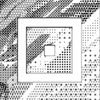Maurizio Bianchi, "Celtichants"
 Since his emergence from self-imposed exile in the late 1990s, Maurizio Bianchi has become extremely prolific, and even more so in the past few years. Like other artists who release this volume of material, I have only dabbled here and there amongst his contemporary. The newer material is more in-line with the sound art and ambient worlds than his older MB material was to the then-burgeoning industrial and power electronics scene, and judged on its own merit, is quite good, as is this album here.
Since his emergence from self-imposed exile in the late 1990s, Maurizio Bianchi has become extremely prolific, and even more so in the past few years. Like other artists who release this volume of material, I have only dabbled here and there amongst his contemporary. The newer material is more in-line with the sound art and ambient worlds than his older MB material was to the then-burgeoning industrial and power electronics scene, and judged on its own merit, is quite good, as is this album here.
Celichants is his latest work, a single hour-long piece that, as near as I can tell, has little to do with Irish culture.Instead the piece is dedicated to Isadore Ducasse (aka Comte de Lautreamont). It features photo-cards of stone formations and an esoteric, likely cut-up surrealist text from Bianchi, illuminating nothing overtly about the album.
Consistent with his old MB releases, there is a huge amount of delay and reverb covering everything, in this case the most overt source material being the human voice, fragmented and masked as to only vaguely resemble its source.Occasional hints of conventional music seem to rise to the surface but just as quickly drift away into the murky space.At one point it almost sounds like bagpipes appear (or samples thereof), leading to the denser, heavier moments to be heard, and perhaps the Celtic part of the title.
While the first half has a distinctly cold, disconnected feel, the second half drifts into darker spaces, obscured by waves of sound that blur distant, unidentifiable noises.Even though there are a few hints at melody that come up, it mostly stays hidden and masked in the darker layers of effects and ambience.The closer is a bit more spacey and stereotypically electronic, with clattered crashes and bangs to end on a disjointed note.
I will admit, the work of Maurizio Bianchi does not grab me in the same way that the work as MB did in the early 1980s does.In all fairness, it is simply a change in approach and style rather than quality.The work Bianchi did as MB (Symphony for a Genocide, Menses, etc) was intentionally depressive and bleak, with a certain rawness that let it fit in nicely with the early noise and power electronics scene, though his contemporaries were far more angry and violent in comparison.His newer work is by no means all puppies and sunshine or trite new-agey dreck, but it does not have the same intensity as his older albums.
Celtichants is more in league with the work of Aube, with whom he has collaborated.There never is a specific feeling or emotion conveyed, just a deconstruction/reconstruction of sound, which he does very well.With his multitude of releases and collaborations, I can not speak to how this fits in overall, but those familiar with Bianchi's more recent work surely will not be disappointed, although they will not be surprised at what they hear either.
samples:
 



